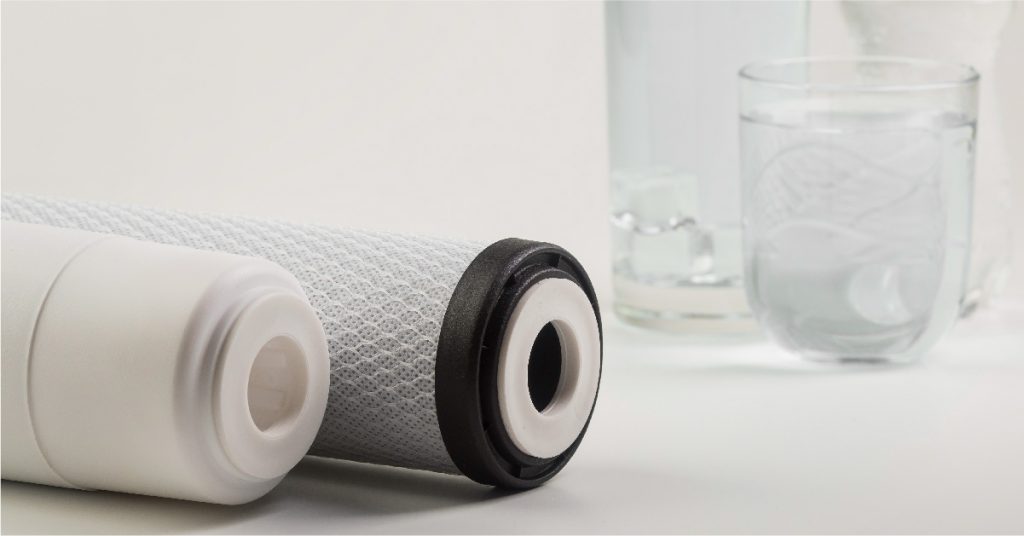The United Arab Emirates (UAE), with its rapid urban growth and desert climate, faces constant challenges in ensuring access to safe and high-quality water. As the country continues its journey toward sustainability and advanced infrastructure in 2025, the role of innovative technologies in water treatment becomes increasingly important. Among these, the activated carbon filter stands out as one of the most reliable and widely used solutions for enhancing water purity.
Understanding the Activated Carbon Filter
Before diving into its impact, it’s essential to understand what this technology entails. An activated carbon water filter is a treatment device that uses activated carbon—carbon processed to have a vast surface area and high porosity—to capture and remove impurities. The material works through adsorption, meaning contaminants stick to the surface of the carbon rather than being absorbed into it.
But the real question many ask is: what does an activated carbon filter remove from water? The answer lies in its ability to eliminate chlorine, volatile organic compounds (VOCs), pesticides, herbicides, bad taste, and odors. This makes it particularly effective in producing water that is not only safe but also pleasant to drink.
Why Activated Carbon Water Filter Vital in the UAE in 2025?
Water security has always been a key issue in the UAE due to limited freshwater resources. Most of the nation’s water comes from desalination plants, which convert seawater into potable water. While desalination ensures availability, the process sometimes leaves behind traces of chemicals and compounds that affect water quality.
In 2025, as the UAE continues to prioritize health, sustainability, and innovation, the activated carbon water filter plays a vital role in:
- Enhancing Taste and Odor: By removing chlorine and organic compounds, the filters improve the overall taste of desalinated water.
- Protecting Health: Effective removal of harmful contaminants like pesticides, herbicides, and VOCs ensures safe drinking water.
- Supporting Sustainability: By reducing the need for bottled water consumption, these filters contribute to the UAE’s goal of minimizing plastic waste.
What Does an Activated Carbon Filter Remove from Water?
One of the biggest strengths of this technology is its wide range of applications. To put it simply, what an activated carbon filter removes from water includes:
- Chlorine and Chlorine By-Products – Common in treated water but potentially harmful and unpleasant in taste.
- Organic Chemicals – VOCs, pesticides, and herbicides that may seep into groundwater or desalinated sources.
- Micro-Pollutants – Pharmaceuticals and industrial residues that conventional treatment may not fully eliminate.
- Taste and Odor Compounds – Making water more appealing and safer for everyday use.
However, while highly effective for chemical and organic contaminants, activated carbon filters are not designed to remove dissolved salts, minerals, or heavy metals. For complete purification, they are often paired with reverse osmosis or other advanced filtration systems.
Applications of Activated Carbon Filters in the UAE
In 2025, the UAE’s industries and households are increasingly turning to activated carbon filters due to their versatility and efficiency.
- Residential Use: From kitchen units to whole-house filtration, they provide clean and pleasant-tasting water for families.
- Commercial Use: Restaurants, hotels, and cafes rely on them to ensure safe drinking water and improve beverage quality.
- Industrial Use: Pharmaceuticals, food and beverage production, and chemical industries use activated carbon water filters to meet strict water quality standards.
This adaptability makes them one of the most valuable tools in the UAE’s modern water management strategy.
Ion Exchange Activated Carbon Filter for Efficient Water Purification
The Ion Exchange Activated Carbon Filter (ACF) is engineered for efficient removal of color, odour, free chlorine, and organic impurities such as oil and COD from raw water. Using carbon as the filtration media, the ACF ensures high-performance purification post-multi-grade filtration, operating effectively at specific flow rates of 10–24 m³/h. Designed by ASME Sec VIII, Div-I or IEI good engineering practices, the unit comes with construction options in MS, MSRL, or SS 316, and frontal pipework in PVC, MS, MSRL, or SS 316. With its ability to handle higher specific velocities and the option to use raw water for backwashing, this filter safeguards downstream systems, particularly RO membranes and ion exchange resins, against damage from oxidation and organic fouling.
Conclusion
As the UAE strengthens its water security and sustainability goals, the activated carbon filter plays a crucial role in ensuring purity, safety, and taste in 2025. By addressing the key question—what does an activated carbon filter remove from water—it is clear that this technology is indispensable in modern water treatment strategies.
From homes and businesses to large-scale industries, activated carbon water filters stand at the forefront of providing high-quality water in the UAE. With continuous innovation, they will remain a cornerstone of sustainable water management in the years to come.


